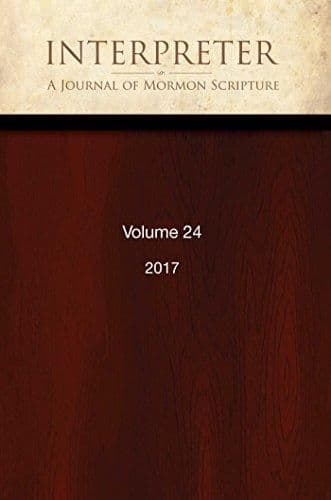Journal
Father is a Man: The Remarkable Mention of the name Abish in Alma 19:16 and Its Narrative Context

Title
Father is a Man: The Remarkable Mention of the name Abish in Alma 19:16 and Its Narrative Context
Publication Type
Journal Article
Year of Publication
2015
Authors
Bowen, Matthew L. (Primary)
Journal
Interpreter: A Journal of Latter-day Saint Faith and Scholarship
Pagination
77-93
Volume
14
Abstract
The mention of “Abish” and a “remarkable vision of her father” (Alma 19:16) is itself remarkable, since women and servants are rarely named in the Book of Mormon text. As a Hebrew/Lehite name, “Abish” suggests the meaning “Father is a man,” the midrashic components ʾab- (“father”) and ʾîš (“man”) being phonologically evident. Thus, the immediate juxtaposition of the name “Abish” with the terms “her father” and “women” raises the possibility of wordplay on her name in the underlying text. Since ʾab-names were frequently theophoric — i.e., they had reference to a divine Father (or could be so understood) — the mention of “Abish” (“Father is a man”) takes on additional theological significance in the context of Lamoni’s vision of the Redeemer being “born of a woman and … redeem[ing] all mankind” (Alma 19:13). The wordplay on “Abish” thus contributes thematically to the narrative’s presentation of Ammon’s typological ministrations among the Lamanites as a “man” endowed with great power, which helped the Lamanites understand the concept of “the Great Spirit” (Yahweh) becoming “man.” Moreover, this wordplay accords with the consistent Book of Mormon doctrine that the “very Eternal Father” would (and did) condescend to become “man” and Suffering Servant.
Subject Keywords
Bibliographic Citation
Terms of use
Items in the BMC Archive are made publicly available for non-commercial, private use. Inclusion within the BMC Archive does not imply endorsement. Items do not represent the official views of The Church of Jesus Christ of Latter-day Saints or of Book of Mormon Central.